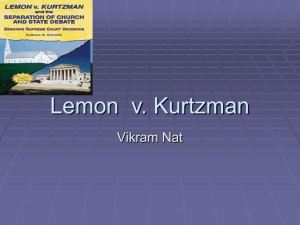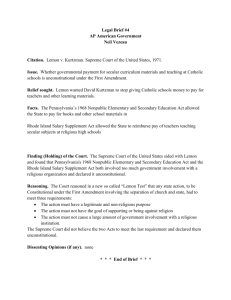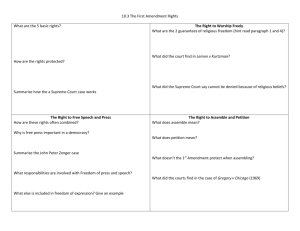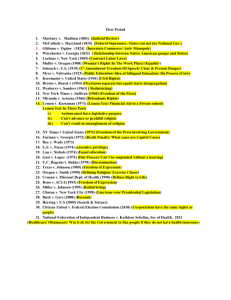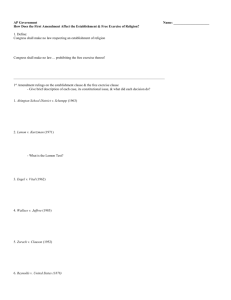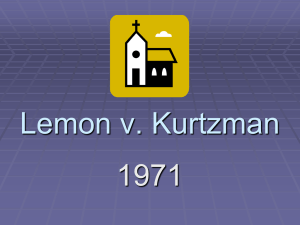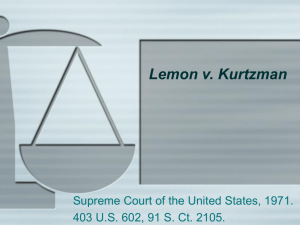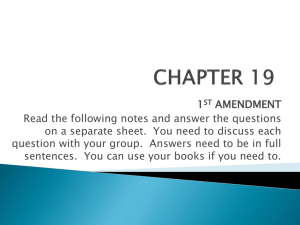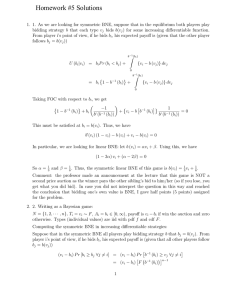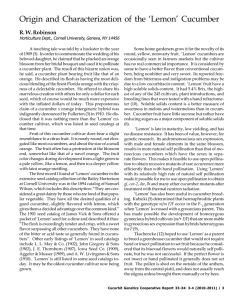Lemon v. Kurtzman
advertisement
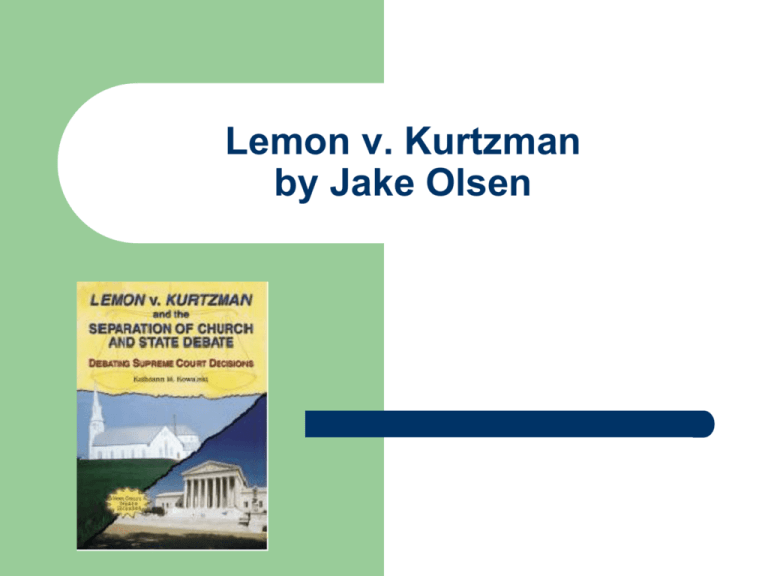
Lemon v. Kurtzman by Jake Olsen The Facts Two separate laws were at issue in this case – – Both of these laws allowed for teachers who taught secular subjects (not involving religion) to have a supplemented salary paid by the state government Alton J. Lemon was a resident and taxpayer who challenged the laws in federal court – The Rhode Island Salary Supplement Act of 1969 Pennsylvania Non-Public Elementary and Secondary Education Act of 1968 After his case was dismissed by the federal district court, he appealed to the US Supreme Court Lemon claimed that they violated the First Amendment’s prohibition of a state establishing a religion – The First Amendment was at conflict because the state was giving preferential treatment to private school teachers who taught secular subjects The Supreme Court’s Ruling Decision: 8 votes for Lemon, 0 votes against Chief Justice William Burger, writing for the majority, decided that there should be a three-part test (“Lemon Test”) for laws dealing with religious establishment To be constitutional a law must: – – – Have a secular legislative purpose Its effects must not help or hinder religion Must not involve the government too heavily in religion Supreme Court ruled this way to prevent any future laws that violated the establishment clause How Did This Change Our Interpretation of the Constitution? States must use the “Lemon Test” before implementing a law that could possibly violate the First Amendment Any law that a state makes must only benefit schools for secular reason There were no dissenting opinions
